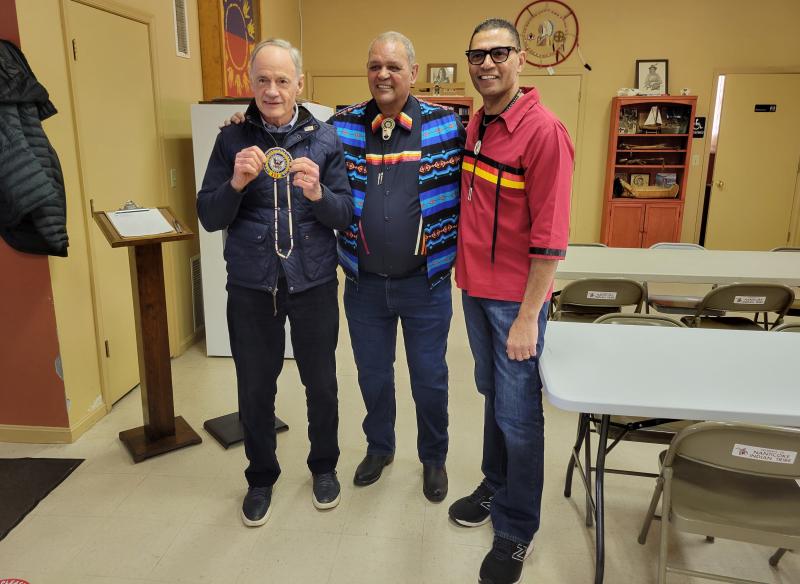Costs for Nanticoke Indian Association improvements rising

With the future expansion of its museum, the growth of its tribal center and the building of a memorial park on ancestral lands adjacent to the center, the Nanticoke Indian Association has a lot on its plate.
Over the past couple of years, with help of grants from the state and federal governments and other organizations, the NIA has successfully raised millions of dollars to be put toward those projects.
The problem is that projected costs have gone up, and there’s a need for more funding, said NIA Chief Avery Johnson, during a meet-and-greet Feb. 3 with Sen. Tom Carper at the tribal center off Route 24 outside Millsboro.
Johnson took over as chief in January. He and Carper had not yet met.
“Let me shake your hand again, because I’m going to be looking for more money,” said Johnson, who had tribal council members and tribal elders join him for the event.
Johnson went on to review the projects with Carper. These weren’t just pulled out of the air, said Johnson. There is a purpose, he said.
Johnson said the tribal center project, which includes a commercial kitchen, a technology room, a food pantry and large meeting space that can be divided, and a general increase in program offerings were originally estimated at $1.85 million. Now, he said, the estimates are coming in at $2.45 million.
Johnson showed a preliminary version of what the park behind the tribal center could look like. There could be a pavilion, gardens, a prayer circle and reforestation of the land.
“It’s just an awesome piece of property,” said Johnson.
The association has also been able to raise $1.5 million toward the museum, but those costs have also increased and now have a price tag of $2.5 million, said Johnson. It’s taken a whole lot to get to this point, said Johnson.
“We mean business. We have a great plan and we’re headed in the right direction,” he said.
At the end of the presentation, Carper said he was impressed with the association’s future plans and seemed to have a desire to work with the group to make the projects come to fruition.
Karen McGrath, Sussex County regional director for Carper, said there’s federal government money for Native American tribes, and there could also be rural development grants available. She said she would look into additional funding sources and get back in touch with the tribal council.
















































